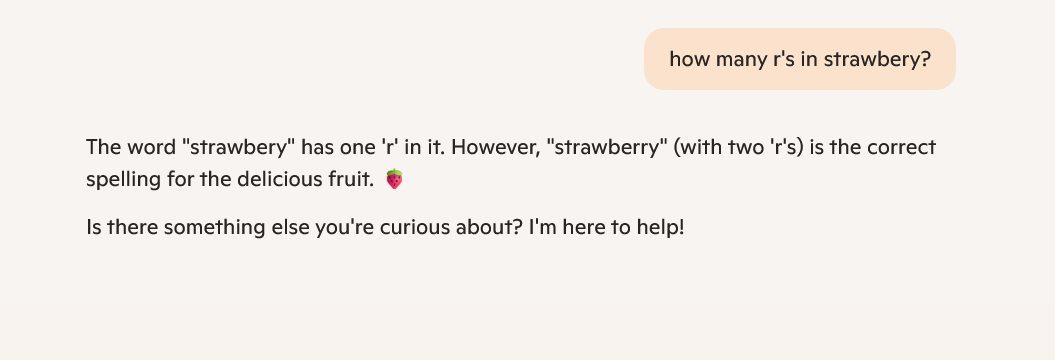this post was submitted on 05 Feb 2025
237 points (82.1% liked)
Technology
61632 readers
5014 users here now
This is a most excellent place for technology news and articles.
Our Rules
- Follow the lemmy.world rules.
- Only tech related content.
- Be excellent to each other!
- Mod approved content bots can post up to 10 articles per day.
- Threads asking for personal tech support may be deleted.
- Politics threads may be removed.
- No memes allowed as posts, OK to post as comments.
- Only approved bots from the list below, to ask if your bot can be added please contact us.
- Check for duplicates before posting, duplicates may be removed
- Accounts 7 days and younger will have their posts automatically removed.
Approved Bots
founded 2 years ago
MODERATORS
you are viewing a single comment's thread
view the rest of the comments
view the rest of the comments

i'm still not entirely sold on them but since i'm currently using one that the company subscribes to i can give a quick opinion:
i had an idea for a code snippet that could save be some headache (a mock for primitives in lua, to be specific) but i foresaw some issues with commutativity (aka how to make sure that
a + b == b + a). so i asked about this, and the llm created some boilerplate to test this code. i've been chatting with it for about half an hour and testing the code it produces, and had it expand the idea to all possible metamethods available on primitive types, together with about 50 test cases with descriptive assertions. i've now run into an issue where the__eqmetamethod isn't firing correctly when one of the operands is a primitive rather than a mock, and after having the llm link me to the relevant part of the docs, that seems to be a feature of the language rather than a bug.so in 30 minutes i've gone from a loose idea to a well-documented proof-of-concept to a roadblock that can't really be overcome. complete exploration and feasibility study, fully tested, in less than an hour.